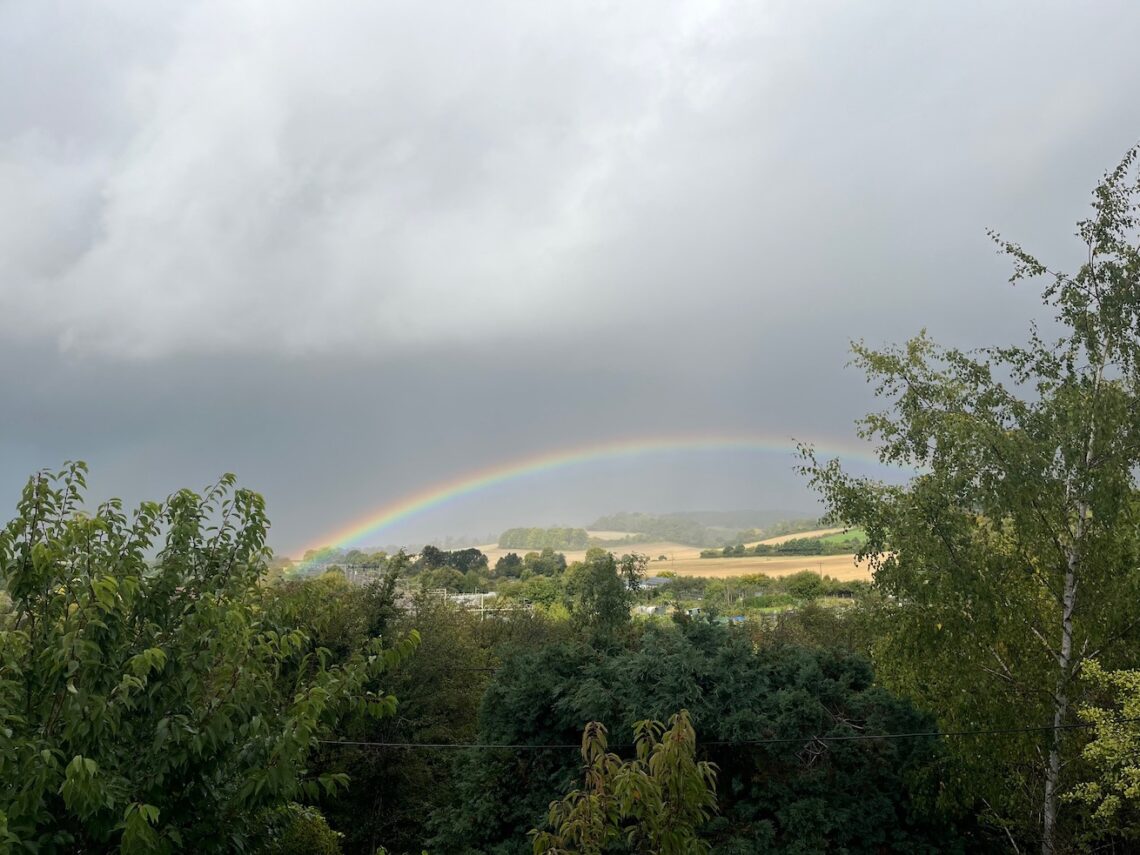
‘Cold, isn’t it’ – The British weather chat explained
The weather. Topic of much smalltalk here in Britain. I suspect that’s because it changes frequently, and usually not how you expect it to.
As I sit here on a rainy day in early June (!), I’m just starting to see the first rays of sunshine again after a long and rather autumnal downpour earlier. We’d had a few lovely sunny and warm days, which had followed a cold and wet end of May (probably because there was a bank holiday) and were hoping for the lovely weather to continue. But no.
When you choose to move to another country, the weather often play a big part in the decision. Most people move to warmer climes, understandably, though some also prefer skiing nations or just temperate weather. So if your new home lies halfway around the world, you’d expect the weather to be very different.
However, a small distance can also make a huge difference. Say between Germany and the UK. Germany enjoys continental weather, which means generally cold winters (crisp, dry and cold enough for snow) and hot summers (hot enough for ice cream and a swim and quite dry). In the UK, on the other hand, you’ll find a temperate climate, which means ‘mild’ winters (generally above 0 degrees but so wet it feels colder) and temperate summers (t-shirt weather interspersed with a few hot days but also many cool and wet days) thanks to the passing Gulf stream and the island nature of the country.
Having said that, despite the stereotype of an Englishman with bowler hat and umbrella, it doesn’t actually rain all the time in England. Scotland gets far more rain. Though while it’s drier than expected, according to the Met Office, Britain got 9% more rain from 2011-2020 than it did from 1961-1990!1 Also, rainfall is getting heavier, as every 1 degree rise in temperature means the air can hold 7% more water.2
Another surprise for me was that there isn’t that much fog in Britain either. When you’ve seen or read a lot of Agatha Christie and Edgar Wallace like I have, who both wrote their mysteries in the first half of the 20th century, you’ll expect London to be impenetrable by fog. In fact, most of the 19th and early 20th century London fog was actually smog from factories and domestic coal fires. This culminated in the Great Smog of London in 1952 when an anticyclone trapped smokey air in the city, which cost thousands of people their lives.3 Not long after, the government passed the Clean Air Act and air quality has been improving. It does get properly foggy in coastal areas and low-lying areas in the autumn and winter, which I think looks very picturesque.
Rain definitely plays a large part in the country, given how many idioms involve precipitation: ‘come rain or shine’, ‘saving for a rainy day’, ‘take a rain check’, ‘rain on someone’s parade’, ‘come down in buckets’, ‘under the weather’, ‘when it rains it pours’ and the famous (though only outside of Britain) ‘it’s raining cats and dogs’.
So why do the Brits talk about the weather so much? According to scientists, part of it is indeed due to the unpredictability of the weather. You just never know what the day will bring, sunshine, rain, snow or all of them. So there’s always something to talk about. However, crucially, weather talk is code for all sorts of things: an ice-breaker, to get a feel for someone’s mood, a safe topic to talk about, a way to bond with someone (probably grumbling over rain and cold), a way to fill awkward silences. It usually starts with something like a question (‘Cold, isn’t it’) and whatever you do, make sure you agree! Anything else would be seen as rude (an early mistake I made when I first moved here and didn’t realise that my honest opinion wasn’t required).
There is also ‘negative face’ – the British cultural desire to be unimpeded, as opposed to the ‘positive face’, which is seen in cultures that value being accepted over the desire to be left alone. ‘Negative face’ cultures choose inoffensive topics (like the weather), e.g. Finland, Switzerland and Japan (the latter also being an island nation with unpredictable weather). ‘Positive face’ cultures like Southeast Asia, China, South America, the US, the Middle East, choose more personal topics such as age, weight or what people do for a living as an ice-breaker, which would be seen as rude or forward by a British person.4
Who guessed that the weather would be related to these cultural nuances? But I guess that’s why I feel at home here.
4 https://www.bbc.co.uk/future/article/20151214-why-do-brits-talk-about-the-weather-so-much, accessed 3/6/25

Back to the EU?
You May Also Like

Mother’s Day – Around the world, throughout the year
March 16, 2025
10 German-British cultural differences you may not know about yet
April 23, 2025

